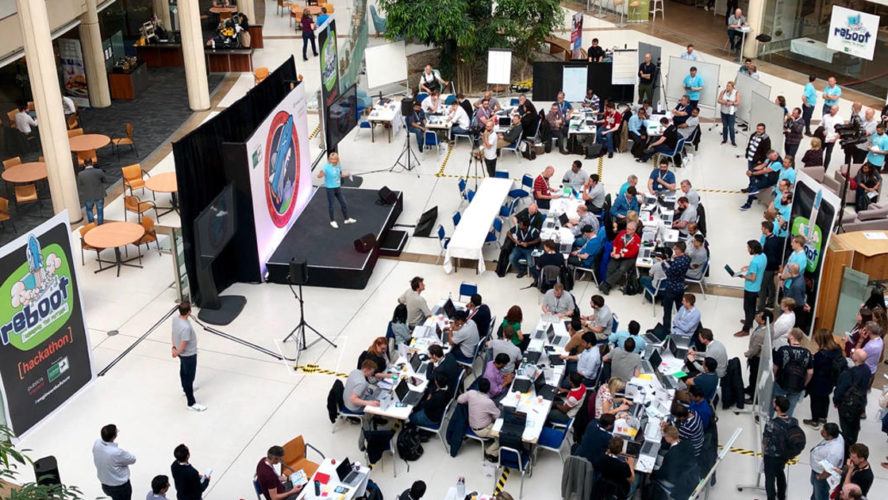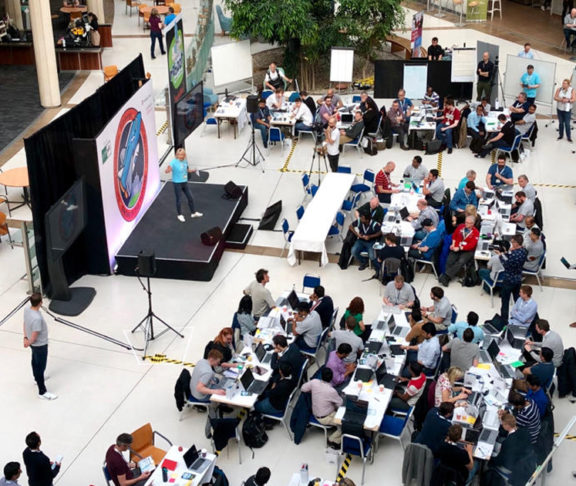
Software engineering opportunities in financial services are many and varied. That’s why the sector is finding new ways to engage experienced individuals and develop new talent.
People can have outdated ideas about careers in banking admits Sara Milne, Head of Engineering Skills and Community, Chief Technology Office, Lloyds Banking Group. So she is very keen to bust some popular banking myths.
“The bank has a division of 3,000 permanent engineers; technology is very much at the heart of modern banking and is constantly evolving. However, when speaking to students, we often find there is a traditional view of banking jobs involving money and mathematics rather than technology, so we are keen to challenge that misconception. We want to be clear about our technology strategy so we can find people with the right skills and attitudes to help us along the way.”
For example, there are myriad opportunities for engineers, who are employed in a range of disciplines including Software Engineering, DevOps and Site Reliability Engineering, Quality Engineering, Cloud Technology, Cyber Security, and Data Science and Analytics. Work is varied and may involve building solutions for the bank’s 18 million digitally active customers, creating pipelines for the continuous integration and deployment of new software, or moving services safely into the cloud. Colleagues deliver solutions across retail, insurance and wealth, commercial and business banking and enterprise divisions.
Developing a modern engineering agenda
Finding the best tech talent means casting the net as widely as possible by opening up a number of career entry points. These include engineering apprenticeships, an intensive development programme for people of all ages, involving learning and certification alongside on-the-job experience with mentoring from experienced practitioners. Apprenticeships also give established colleagues the opportunity to retrain in technology roles.
Then there are Software Engineering Graduate schemes, which develop talented graduates along ‘technology mastery’ and ‘technology leadership’ career paths. This allows colleagues to continually develop stronger engineering skills and build their team capabilities, rather than moving into purely management roles.
Alongside new talent, the bank hires experienced practitioners to bring modern technology skills into the organisation, such as Cloud and DevOps. Alan Cripps, Engineering Lead, Payments and Economic Crime Prevention Lab, Lloyd’s Banking Group, notes that this ensures “a balance that enables us to leverage the experience in our teams to nurture and help develop our colleagues.”
Apprenticeships also give established colleagues the opportunity to retrain in technology roles.
Promoting a continuous learning culture
Milne believes that continual learning will be a significant feature of banking careers going forward. For instance, colleagues already working in engineering technology keep their careers and skills relevant to the organisation with continuous retraining and upskilling. Milne also believes that software engineering will only grow in importance in the years ahead. “Today’s young people will enter a workforce where constant learning and relearning will be key,” she says. “Having some knowledge of software engineering will be a base skill that almost everyone will need.”
Creating this new learning culture means embracing experimentation and collaboration to do things differently. In the bank’s case, it has hosted public meet-ups to engage the broader technology community and developed a series of in-house hackathons — large learning events for around 500 colleagues who are able to experiment with new tech in a safe environment outside of the bank. It has also sponsored external events such as ShowCode’s Athena Hackathon, dedicated to encouraging, inspiring and supporting women and non-binary people to pursue a career in tech. “Our sponsorship of the Athena Hackathon is a great way of engaging with people early in their careers and talking to them about working life in the bank,” says Milne.



